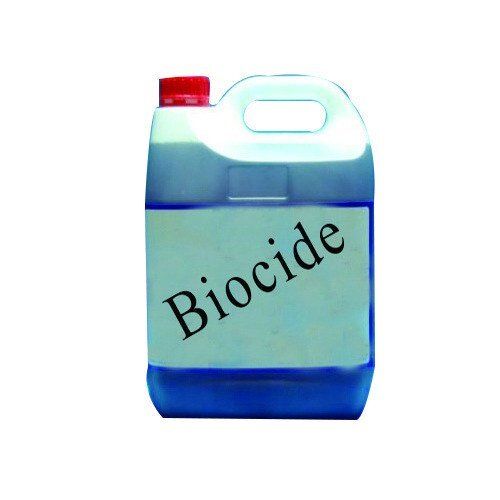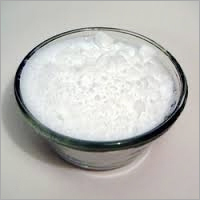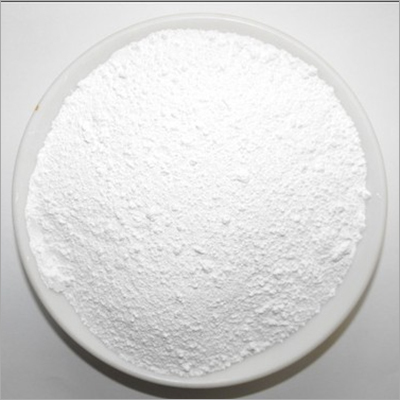Call Us : 08045816053
Biocide Chemical
Price 60 INR/ Kilograms
MOQ : 25 Kilograms
Biocide Chemical Specification
- Form
- Liquid
- Storage
- Room Temperature
- Taste
- Odorless
- Purity
- 98%
- Grade
- Industrial Grade
- Usage
- Industrial
Biocide Chemical Trade Information
- Minimum Order Quantity
- 25 Kilograms
- Supply Ability
- 10 Kilograms Per Week
- Delivery Time
- 1 Days
About Biocide Chemical
A biocide is a chemical substance or microorganism that is used to control or eliminate harmful or unwanted biological organisms. Biocides are typically employed to prevent the growth or proliferation of bacteria, fungi, viruses, algae, and other microorganisms in various settings, including industrial processes, agriculture, water treatment, healthcare, and consumer products. They are also used to protect materials and surfaces from biological degradation or fouling.
Biocides can take various forms, such as disinfectants, antifungal agents, algaecides, and preservatives. Some common examples of biocides include:
1. Disinfectants: These are used to kill or inhibit the growth of pathogenic microorganisms on surfaces, in water, or in the air. Common disinfectants include chlorine, hydrogen peroxide, quaternary ammonium compounds, and alcohol-based solutions.
2. Pesticides: Pesticides, including herbicides, insecticides, and fungicides, are biocides used to control or eliminate pests that can harm crops, plants, or animals.
3. Preservatives: Biocides are used to preserve products such as cosmetics, paints, and wood by preventing the growth of bacteria, fungi, or other microorganisms.
4. Algaecides: These substances are used to control and eliminate algae growth in water bodies, such as swimming pools, cooling towers, and ponds.
5. Antimicrobial agents: Biocides are used in personal care products like hand sanitizers and soaps to prevent the growth of harmful microorganisms on the skin.
The use of biocides is subject to regulations and guidelines to ensure their safety and effectiveness. In many cases, biocides should be used with care to minimize their environmental impact and potential health risks. The choice of a biocide and its application will depend on the specific target organisms, the environment, and the intended purpose.
Biocide Properties:
Biocides, which are substances or agents used to control or eliminate unwanted or harmful microorganisms, possess various properties and characteristics. These properties can vary depending on the specific type of biocide and its intended application. Here are some common properties of biocides:
1. Microbial Activity: Biocides are designed to be effective against a wide range of microorganisms, including bacteria, fungi, viruses, and algae. The specific spectrum of activity may vary depending on the biocide.
2. Toxicity: Biocides are generally toxic to microorganisms, but they can also be toxic to humans, animals, or the environment if used improperly or in high concentrations. Understanding their toxicity and taking safety precautions is essential.
3. Mode of Action: Different biocides have distinct mechanisms of action. Some disrupt the cell walls or membranes of microorganisms, while others interfere with metabolic processes or DNA replication. Understanding the mode of action is crucial for selecting the right biocide for a particular application.
4. Residual Activity: Some biocides have residual or long-lasting activity, meaning they can continue to control microorganisms for an extended period after application. Others have short-term effects and may require frequent reapplication.
5. Environmental Impact: Biocides can have varying degrees of impact on the environment. Its important to consider factors like biodegradability and potential ecological harm when selecting and using biocides.
6. Stability: The stability of a biocide is important to ensure that it remains effective over time and does not degrade or lose its activity under typical storage and usage conditions.
7. Compatibility: Biocides should be compatible with the materials, surfaces, or systems they are used on. Incompatibility can lead to adverse effects or reduced efficacy.
8. pH Sensitivity: Some biocides may work better under certain pH conditions, so its important to consider the pH of the environment where they will be used.
9. Regulatory Compliance: Biocides are often subject to regulations and guidelines to ensure their safety and effectiveness. Compliance with these regulations is important for their legal and safe use.
10. Resistance Development: Prolonged and improper use of biocides can lead to the development of resistance in target microorganisms. This can reduce the biocides effectiveness over time and may necessitate the use of alternative products.
11. Safety Precautions: Users of biocides must follow safety precautions, including wearing appropriate protective gear, handling and storing biocides correctly, and adhering to recommended application methods.
12. Application Method: The choice of application method (e.g., spraying, dipping, fumigation) can impact the effectiveness of a biocide and its distribution in a specific environment.
Biocide FAQ:
Q. What is a biocide?
Ans: A biocide is a chemical substance or microorganism used to control or eliminate harmful or unwanted biological organisms, such as bacteria, fungi, viruses, algae, and other microorganisms.
Q. What are common applications of biocides?
Ans: Biocides are used in a wide range of applications, including disinfection, pest control, preservation, water treatment, personal care products, and more.
Q. How do biocides work?
Ans: Biocides work through various mechanisms, such as disrupting cell membranes, interfering with metabolic processes, or damaging genetic material. The specific mode of action depends on the type of biocide.
Q. Are biocides safe for humans and the environment?
Ans: Biocides can be safe when used properly and according to guidelines. However, some biocides can be toxic to humans, animals, or the environment. Its crucial to follow safety precautions and use them responsibly.
Q. Can biocides lead to the development of resistance in microorganisms?
Ans: Prolonged and improper use of biocides can lead to the development of resistance in target microorganisms, reducing the biocides effectiveness over time. This is particularly concerning in healthcare settings.
Q. How do I choose the right biocide for my specific application?
Ans: The choice of a biocide depends on factors such as the target organisms, the environment, the intended purpose, and regulatory requirements. Consulting with experts or conducting proper testing is often necessary.
Q. Are there regulations governing the use of biocides?
Ans: Yes, many countries have regulations and guidelines in place to ensure the safe and effective use of biocides. Compliance with these regulations is essential.
Q. What are some common examples of biocides?
Ans: Common biocides include disinfectants, pesticides (herbicides, insecticides, fungicides), preservatives, algaecides, and antimicrobial agents.
Q. Do biocides have a residual effect, and how often should they be reapplied?
Ans: Some biocides have residual activity, while others provide short-term effects. The frequency of reapplication depends on the specific biocide and application.
Q. What precautions should I take when handling and storing biocides?
Ans: Safety precautions include wearing protective gear, following recommended application methods, storing biocides in appropriate containers, and ensuring proper ventilation in the application area.
Q. What environmental factors should be considered when using biocides?
Ans: Environmental factors such as biodegradability, potential ecological impact, and pH conditions of the application environment should be considered when using biocides.
Q. Are there alternatives to using biocides for controlling microorganisms?
Ans: Some alternatives to biocides include physical methods (e.g., heat, UV radiation), natural products, and biological control agents. The choice of method depends on the specific application and its requirements.
Consistent Microbial Control
This Biocide Chemical delivers reliable performance in controlling microbial contamination across industrial facilities, thanks to its high 98% purity. Its odorless nature ensures that it doesnt interfere with processes sensitive to taste or smell, making it suitable for a wide array of industrial applications.
Effortless Storage and Handling
Designed for ease of use, this liquid biocide doesnt require special storage conditionsjust keep it at room temperature. The liquid form simplifies dosing and mixing, making it a practical choice for industrial environments where efficiency and convenience are paramount.
FAQs of Biocide Chemical:
Q: How is the Biocide Chemical typically used in industrial settings?
A: The Biocide Chemical is mixed into industrial systems, such as cooling towers or manufacturing processes, to control microbiological growth. Its liquid form allows straightforward integration, helping prevent contamination and equipment degradation.Q: What benefits does the odorless and tasteless property provide?
A: Being odorless and tasteless, this biocide doesnt alter the sensory qualities of products or environments its used in, making it suitable for sensitive applications and ensuring workplace comfort.Q: When should the Biocide Chemical be added to industrial processes?
A: It is best to add the biocide during routine maintenance cycles or as recommended by technical guidelines for your specific industry to maintain consistent microbial control and prevent biofouling.Q: Where should the product be stored for optimal safety and effectiveness?
A: This biocide should be stored at room temperature in sealed containers, away from direct sunlight and incompatible substances, to preserve its efficacy and ensure safe handling.Q: What is the process of sourcing this biocide from India?
A: As a distributor, exporter, importer, and supplier in India, we offer streamlined procurement. Clients can place orders directly, and we arrange for timely delivery domestically or for export, ensuring consistent supply and support.Q: What grade is the Biocide Chemical, and why does it matter?
A: This product is industrial grade, meaning it meets stringent requirements for use in industrial environments. This grade ensures reliable potency and compatibility with varied industrial systems for optimal results.
Tell us about your requirement

Price:
Quantity
Select Unit
- 50
- 100
- 200
- 250
- 500
- 1000+
Additional detail
Mobile number
Email

 Send Inquiry
Send Inquiry



 English
English Spanish
Spanish French
French German
German Italian
Italian Chinese (Simplified)
Chinese (Simplified) Japanese
Japanese Korean
Korean Arabic
Arabic Portuguese
Portuguese